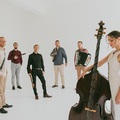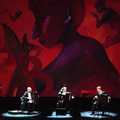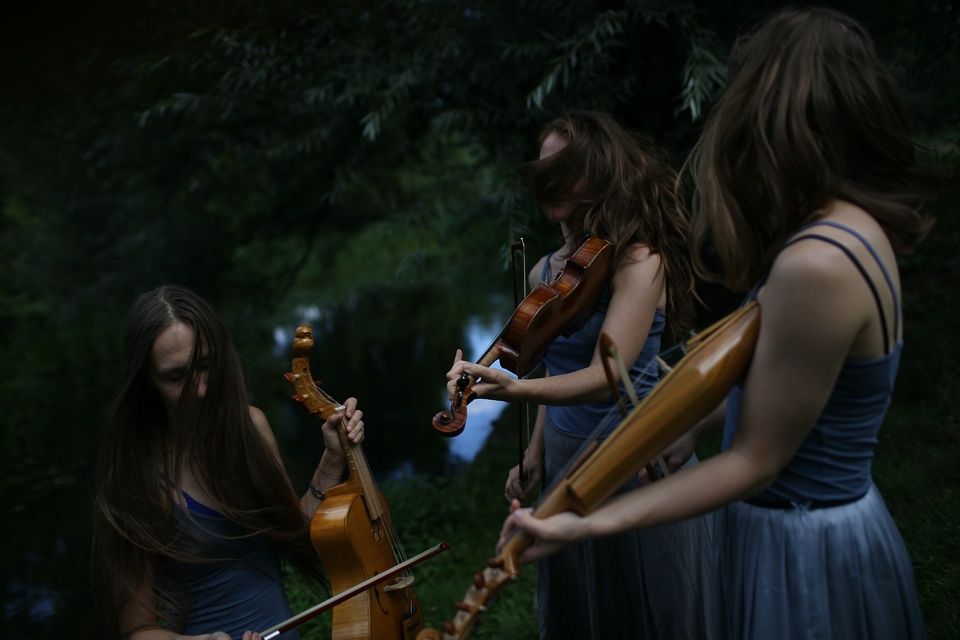
Three women, three different characters, three special voices - looking for perfect harmony. Harmony with nature, Mother Earth, harmony in their traditions, womanhood and female roles. The Polish trio Sutari, formed by Kasia Kapela, Basia Songin and Zosia Zembrzuska, is going to release their third album, titled River Sisters, in June this year.
Your voices are in perfect harmony. How did these voices encounter? How did you three meet the folk scene? Tell us about the process of harmonizing three different voices...
It all started with the intention to create music together. We are all very different and have strong characters, which is why we added respect towards each individuality to this intention of working together. In this way, we found the recipe for our harmony: constant search for a place to express ourselves individually while remaining in a dialogue. And then many years of common practice.
The name Sutari originates from the term ‘Sutartines’ which is a unique Lithuanian form of vocal folk music. What links you to this style (since it is not Polish)? Why do you feel that specific musical form suitable for your formation?
Apart from the beauty of these songs, we were moved by the fact that they are sung by women who used to create constellations for their entire lives. “Sutarti” in lithuanian language means to be together, to harmonize. Each voice creates its own "separate" song that beautifully meets other voices. We took this idea as a part of our vocal training and background to develop our own composing techniques.
How do you select the themes of the original folk songs? How relevant do you think these old lyrics are today? Do you change or refresh anything in the wording?
We are always looking for the content that concerns us and, at the same time, remains universal. The older the lyrics, the more exciting is the opportunity to immerse yourself in them. We are interested in showing the beauty of old traditions. We are also looking for honesty of expression, so sometimes for example we give up regional dialects that are not ours, so as not to have a sense of artificiality in what we sing.
Today, however, we reach for our own words and write lyrics.
You play instruments that are used originally in Polish folk music, but you add some kitchen equipment and effects as well - which sets an unexpected but familiar sound environment. My impression is that you might be wondering about ‘women’s place in the kitchen’. You found a particular answer to that complex question. How did the kitchen end up on the stage?
Usually the audience laughs when they see us with a kitchen mixer, chopping board and grater on the stage. That's entertaining, but above that we want to raise questions about the place of women in the kitchen, art and public life. As you say, the matter is complex and art can be an important commentary. We want to provoke and inspire: as even simple everyday objects don't have to be what they appear, we'd like to encourage the freedom to do things your own way. Our first slogan, eight years ago, was: ‘the kitchen avant-garde’. :)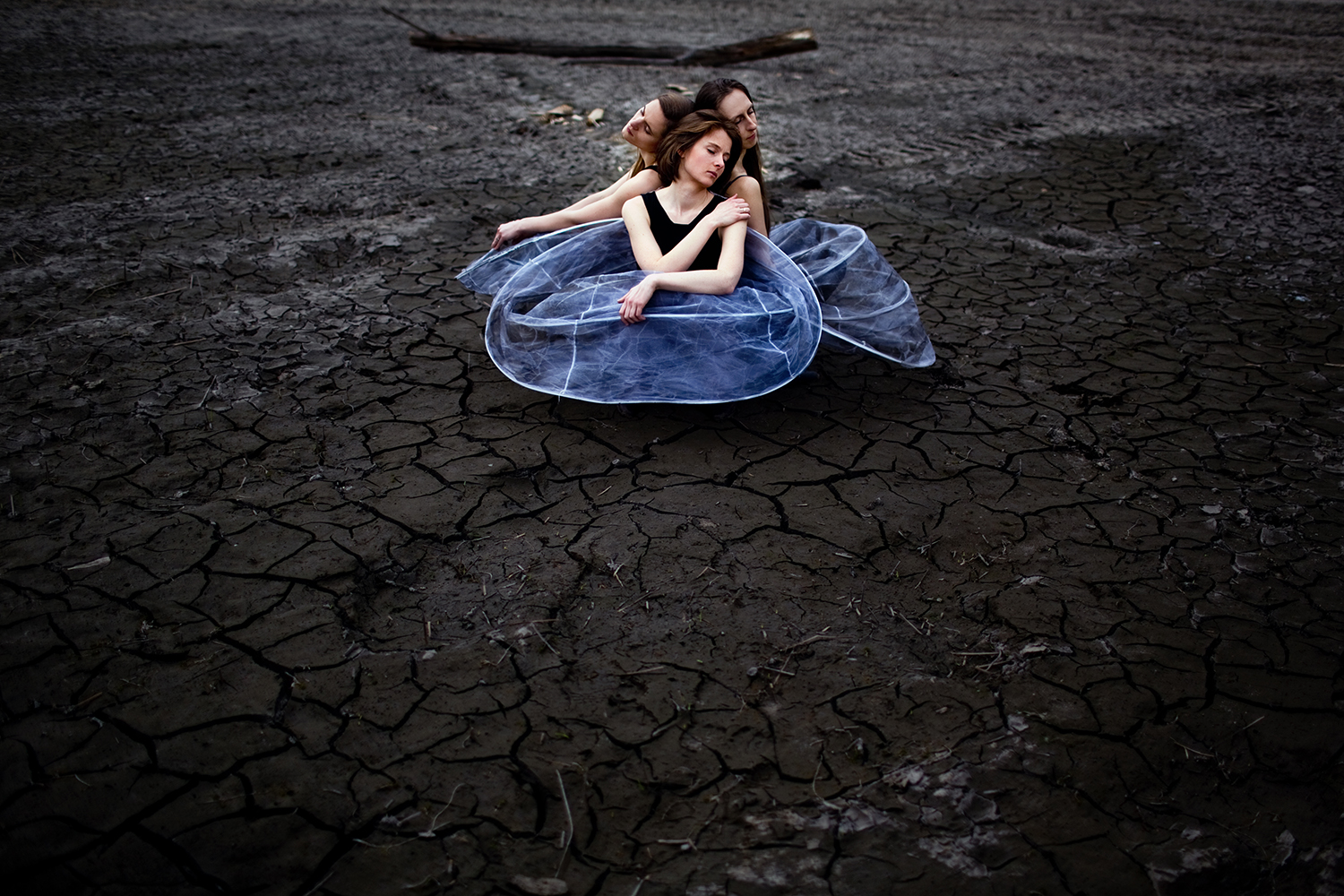
You also discuss female roles in your play ‘Watermelon’. You also experiment in different art scenes (like musical accompaniment of a silent film) and have other projects, co-operations with different bands. Tell us about these ‘outlooks’.
Prior to the attitude of musicians there is an artistic attitude that inspires us to act in various fields. We met in the theater, as all three of us, next to music, are also interested in movement, word and image. The possibilities are therefore limitless. Working with other artists is inspirational and gives us a lot of joy. We were lucky to work with amazing people. The list is long :) we cannot mention all of them. Starting from our artistic residence in Brazil and working with Mawaca, Barbatuques, Dj Mam, Camarata Caipira, Trio Baru and with Etnohaus in Rio. These are unforgettable and empowering experiences. We are thinking a lot about our friends in Brazil these days. Then the British trio Dead Rat Orchestra and our joint tour around the UK. We got a lot from them, being able to discover the amazing palette of sounds they create. And last but not least, in the home yard with Hańba, we had a lot of joy working and recording with this energetic and creative band. In the meantime, we performed with a wonderful butoh duo from Tokyo, Mutsumi&Neiro and a beautiful band which we had the pleasure to meet in the USA, Anna & Elizabeth. Soon we will share the fruits of our cooperation with the great Swedish family band Fränder. We made joint recordings in Stockholm, a few hours before the evacuation to Poland due to the pandemic.
Your perfectly created visual identity is also an important point of the whole picture of Sutari. You can place a photo-shooting or CD recording in the woods, but stages you cannot choose. On a theater stage you can use sets to create the atmosphere but how can you adopt this picture on musical stages, where the environment is given? How does ‘genius loci’ affect you?
Each stage is a challenge, it's true. We like stages in which we can have direct contact with the audience. Both on intimate stages, where we see each other well and in large halls, but with excellent acoustics. We had a chance to perform in a lot of amazing places, but we would like to mention two of these: concerts on Fano island in Denmark during the Fano Folk Festival and at Anarcho Folk Punk Fest in Wolimierz and we have no doubt that in both cases the organizers and the audience created that extraordinary atmosphere. The most important, however, is the atmosphere among us, so we focus on that.
What if we separate your voices, what can be revealed about Basia, Kasia and Zosia?
All that each of us contribute to this project you can hear in our music, see on stage - our imagination, creative sensitivity, skills, ideas and feelings we want to share. If you are an attentive observer, you can distinguish our temperaments. :)
It's true that each of us brings different skills to the music and to our backstage life, thanks to which we evolve and we are complete as a band. However, working in a team, it is equally important to use your best skills as well as playing different roles and not to get stuck in one perspective. We are creative persons, we love to invent, experiment, work with people, get new experiences and learn, so there are a lot of art projects that we are doing - theatre, circus, music, video. We create a few music projects in different constellations: Kapela Timingeriu, Mehehe.
And finally, great news for all of us: new album in June! Compared to the previous two albums which you released within five years what can we expect from the upcoming third? What are your plans for promoting the album under these trying circumstances?
This time there will be much more of our own compositions and lyrics than used to be. The material for the new album is still inspired by Polish traditional folk songs, but also it is more connected to the present. We wanted to give voice to the subjects that are urgent and important to us: nature, freedom, feminism, and sisterhood. One of our main goals is to emphasize the importance of caring for our planet and nature. This is one of the reasons why the title of our is River Sisters. We dedicate our music to the sister, mother earth and all people who work to protect our common environment. The name River Sisters relates to the wonderful environmental and artistic movement in Poland, Siostry Rzeki as well. We came up with many scenarios for an alternative premiere that can substitute the cancelled premiere concerts in Warsaw and Brussels. Certainly the day of the River Sisters premiere, June 20th, will remain the day we celebrate together in our trio and maybe that's how the perfect premiere for musicians should look like :). However, we will definitely prepare something special for you on this day.
Zsófia Lázár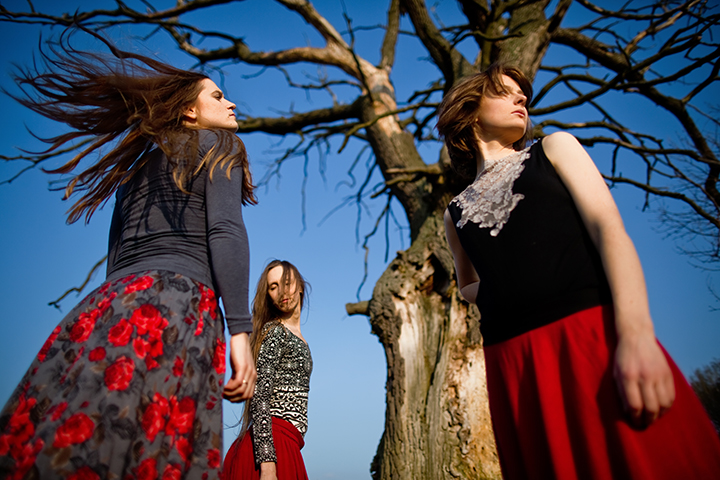
Photos by Piotr Spigiel
More Warsaw Return articles here
THE INTERVIEW WAS SUPPORTED BY THE WACŁAW FELCZAK FOUNDATION
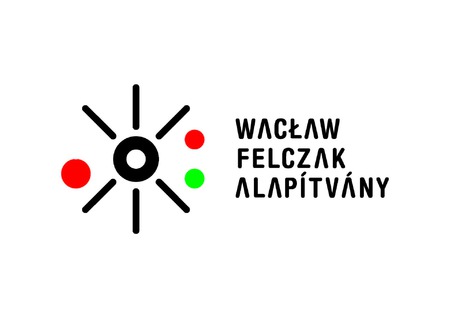

A bejegyzés trackback címe:
Kommentek:
A hozzászólások a vonatkozó jogszabályok értelmében felhasználói tartalomnak minősülnek, értük a szolgáltatás technikai üzemeltetője semmilyen felelősséget nem vállal, azokat nem ellenőrzi. Kifogás esetén forduljon a blog szerkesztőjéhez. Részletek a Felhasználási feltételekben és az adatvédelmi tájékoztatóban.
